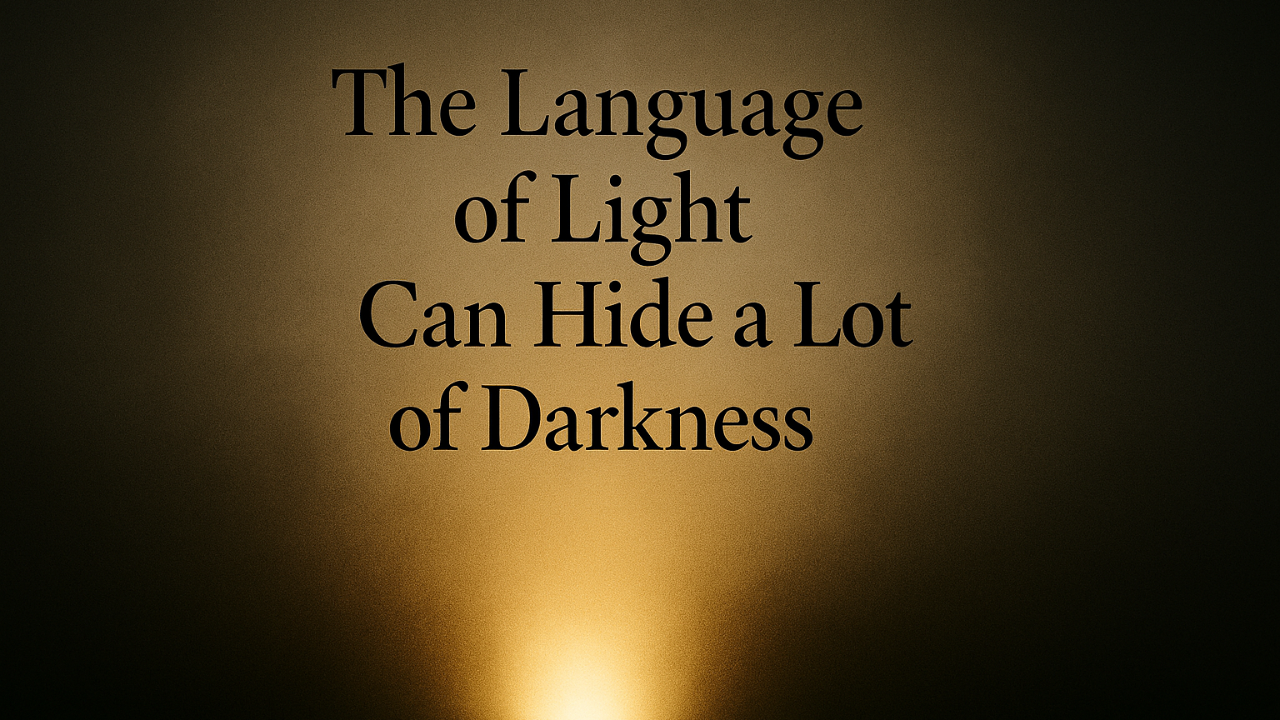The Language of Light Can Hide a Lot of Darkness

Spiritual people are often some of the kindest, most well-intentioned individuals you will ever meet. They speak in tones of compassion, use words like surrender and alignment, and genuinely want to live from love. But in many spiritual spaces, something subtle and deeply damaging is happening beneath the surface: emotional immaturity is hiding behind spiritual language.
They may say “I’ve let it go,” when in fact they have shut down emotionally. They may say “I’m holding space,” but avoid direct conflict. They may speak of non-attachment while being deeply enmeshed. These patterns are not malicious. They are misunderstood. The language sounds elevated, but the emotional work remains incomplete.
Spiritual Practice Does Not Replace Emotional Development
There is a quiet myth within spiritual communities: that insight is enough. That if you meditate, pray, chant, or raise your vibration, your emotional pain will naturally resolve. While these practices are powerful tools, they cannot take the place of emotional integration.
Emotional development is its own journey. It involves building the capacity to feel discomfort without bypassing it. It means recognising your emotional triggers, your attachment wounds, and your nervous system responses, and learning how to work with them. Without this foundation, spiritual insight becomes fragile. You can know the theory and still fall apart in real relationships.
When Language Becomes a Shield
Many spiritual phrases are used with sincerity, but also as shields. “Everything happens for a reason” can become a way to avoid grief. “It’s all love” can become a refusal to set boundaries. “Don’t take it personally” may dismiss genuine harm. These are not necessarily wrong. But when they are used to skip over emotional truth, they become bypasses.
You will often see this when a spiritual person feels triggered but still wants to appear calm and evolved. Instead of acknowledging their discomfort, they respond with a veiled put-down. Their words may sound careful and calm, but the undertone is cutting. The message is not just disagreement, it is superiority. They avoid direct emotional honesty but still want to control the exchange. The result is a kind of spiritual snark: polished on the outside, but laced with judgement. It feels like you are being subtly corrected or looked down on, and the most confusing part is that it is wrapped in the language of love.
Over time, this pattern becomes normalised within spiritual communities. Emotional avoidance becomes part of the culture, passed down from teacher to student, repeated in workshops, and reinforced through group dynamics that reward spiritual language over emotional honesty. People learn quickly what is acceptable to express and what will get labelled as unevolved. As a result, entire communities can appear peaceful on the outside while remaining emotionally underdeveloped beneath the surface. It is not just personal. It is patterned.
This kind of emotional evasion is rarely challenged because it sounds elevated. But it causes harm. It shuts down genuine dialogue and replaces emotional honesty with spiritual posturing.
Unprocessed Pain Still Leads
Emotions that are not acknowledged do not disappear. They lead from the background. They show up in subtle defensiveness, failed relationships, difficulty receiving feedback, and an inability to repair after rupture. Without emotional awareness, spiritual practitioners may cause harm while believing they are being helpful.
This is why emotionally immature spirituality can become harmful. It projects clarity without substance. It sounds evolved but cannot hold conflict, grief, or truth. And it keeps people stuck in a loop of “healing” that never touches the core.
This is not a dismissal of your spiritual path. If you have been consistent in your practices but still feel reactive, emotionally flat, or disconnected, it does not mean you have failed. It often just means the emotional layer of your healing needs more attention not instead of your spiritual work, but alongside it.
Emotional maturity is not about being perfect. It is about being present with your inner world, especially the parts that do not sound enlightened. It is about learning to feel fully, speak honestly, and relate with integrity, not just in ritual, but in real life.
The most dangerous bypasses are the ones wrapped in light. They are harder to spot and easier to excuse. But truth has its own vibration.
© 2025 Shamala Tan
Begin here: Five Simple but Challenging Steps to Emotional Mastery ➤ https://www.shamalatan.info/emotional-mastery-freebie

